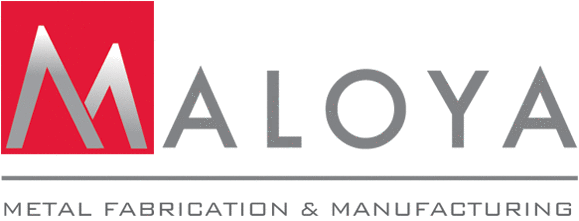Strengthening Supply Chains Through Domestic Contract Manufacturing: Lessons from the US Port Strike
In today's global economy, manufacturers are increasingly recognizing the importance of a resilient supply chain. Recent events, such as the US port strike involving 47,000 dockworkers and affecting approximately 50% of US cargo shipments, have exposed vulnerabilities in traditional supply models. At Maloya, a US-based Contract Manufacturer, we've long understood how domestic manufacturing can contribute to supply chain strength. In this post, we'll explore the impact of recent supply chain disruptions and how partnering with a domestic contract manufacturer can enhance manufacturing resilience.
The US Port Strike: Exposing Supply Chain Vulnerabilities
The recent US port strike sent ripples through global supply chains, highlighting the fragility of international manufacturing dependencies. This labor dispute, affecting major ports along the East and Gulf Coasts, led to:
- Shipping delays of up to several weeks for containerized goods
- Freight rate surges, with some carriers imposing surcharges up to $3,780 per container
- Steel price increases of $100-$150 per ton, directly impacting metal fabrication and related industries
These disruptions underscore the importance of having reliable, domestic partners in the manufacturing supply chain.
The Advantages of Domestic Contract Manufacturing in Strengthening Supply Chains
In light of these challenges, working with domestic contract manufacturers offers several key advantages:
- Reduced Lead Times: Proximity to customers allows for faster production and delivery cycles, minimizing delays.
- Enhanced Quality Control: Closer oversight of manufacturing processes ensures higher product quality and consistency.
- Increased Flexibility: Domestic facilities can more easily adapt to changing market demands and specifications.
- Improved Supply Chain Visibility: Shorter, more localized supply chains offer greater transparency and control.
- Lower Total Cost of Ownership (TCO): While unit costs may sometimes be higher, reduced shipping, inventory, and risk mitigation expenses often result in a lower overall TCO.
We leverage these advantages to provide our clients with reliable, high-quality manufacturing services that contribute to a more resilient supply chain.
Our Approach: Precision Manufacturing for Supply Chain Resilience
As a US-based contract manufacturer, we've developed a robust manufacturing model that prioritizes quality, efficiency, and flexibility. Our comprehensive range of in-house capabilities allows us to serve as a one-stop shop for many of our clients' manufacturing needs.
Key Capabilities Supporting Supply Chain Resilience
- Comprehensive In-House Services: We offer a wide array of manufacturing processes, reducing the need for our clients to manage multiple suppliers. Our capabilities include:
- Laser Cutting
- Precision Bending
- Welding
- Machining
- Finishing
- Hardware Insertion
- Assembly and Testing
- Material Expertise: We work with a variety of metals, including steel, stainless steel, aluminum, and more, allowing us to meet diverse product requirements.
- Advanced Manufacturing Technology: Our state-of-the-art equipment ensures precision, consistency, and efficiency in our fabrication processes.
- Quality Assurance: We maintain rigorous quality control systems with material traceability, ensuring consistent component and finished product quality.
- Flexible Production Capacity: Our operations are designed to handle both high-volume production runs and smaller, custom orders, adapting to our clients' changing needs.
- Engineering Support: We offer design for manufacturability (DFM) assistance, helping optimize designs for efficient production and cost-effectiveness.
By leveraging these capabilities, we help our clients maintain a more stable and responsive supply chain for their components and assemblies.
How Domestic Contract Manufacturing Enhances Supply Chain Resilience
Partnering with a domestic contract manufacturer can significantly improve supply chain resilience in several ways:
- Mitigating Global Disruptions: By reducing reliance on international shipping, companies become less vulnerable to port strikes, global transportation issues, or geopolitical tensions.
- Faster Response to Market Changes: Shorter lead times mean quicker adaptation to changes in demand or product specifications.
- Improved Inventory Management: Working with a local supplier allows for more frequent, smaller deliveries, reducing the need for large inventory buffers.
- Enhanced Communication and Collaboration: Proximity facilitates easier communication, faster problem-solving, and more collaborative product development.
- Quality Assurance: Direct oversight and shared quality standards lead to fewer defects and more consistent product quality.
- Reduced Carbon Footprint: Shorter transportation distances contribute to lower emissions, supporting sustainability goals.
Looking Ahead: The Future of Resilient Manufacturing
As manufacturers continue to prioritize supply chain resilience, the role of domestic contract manufacturers becomes increasingly important. We're committed to ongoing investment in advanced manufacturing technologies, workforce development, and sustainable practices to meet the evolving needs of our clients.
By choosing a domestic contract manufacturing partner, companies aren't just outsourcing a manufacturing process – they're investing in a more agile, responsive, and resilient supply chain.
Partnering for Manufacturing Success
The recent US port strike has underscored the value of domestic manufacturing in building resilient supply chains. As a trusted contract manufacturer, we're committed to providing high-quality, efficient, and flexible manufacturing services that contribute to our clients' supply chain strength.
Whether you're looking to diversify your supplier base, reduce lead times, or enhance your product quality, our comprehensive manufacturing capabilities can support your goals while bolstering your supply chain resilience.
Get In Touch
Ready to explore how domestic contract manufacturing can strengthen your manufacturing process? Contact our experts today to discuss your project needs and discover how our precision manufacturing services can enhance your production capabilities and supply chain resilience.
About the Author: Reto Hug is President & CEO, Maloya Laser Inc. in Commack, NY. As a leading contract manufacturer, Reto understands the challenges of global supply chains and has worked with many global companies to supply components and products locally to reduce their dependence on off-shore producers and ocean freight.
References:
https://maloyalaser.com/solutions/steel-supply-chain-logistics/
https://unitedpipe.com/blog/what-is-happening-with-the-us-port-strike/
https://home.ecri.org/blogs/ecri-blog/the-port-strike-what-it-means-for-supply-chains-and-healthcare
Schedule a consultation today to explore a partnership that promises excellence and reliability.



.png?width=80&name=Untitled%20design%20(37).png)






